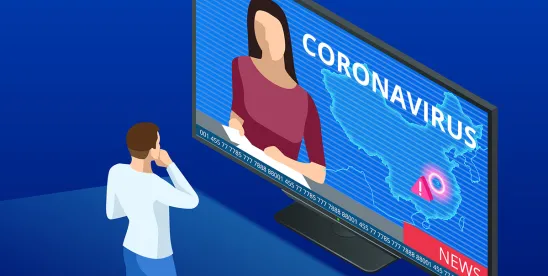Price gouging enforcement and litigation is front and center for company counsel and business managers nationwide. Our weekly round up highlights some of the most relevant news and information for our clients and friends.
White House Issues Executive Order on Sustainable Public Health Supply Chain – Invokes Defense Production Act
One day after taking office, President Biden issued an executive order indicating that his administration may take a more aggressive approach to preventing price gouging. The executive order directs “immediate actions to secure supplies necessary for responding to the pandemic, so that those supplies are available, and remain available, to the Federal Government and State, local, Tribal, and territorial authorities, as well as to America’s health care workers, health systems, patients.” To address pricing of pandemic response supplies, the executive order directs the Secretary of Health and Human Services to recommend to the President whether changes should be made to a previously issued executive order titled, Preventing Hoarding of Health and Medical Resources to Respond to the Spread of COVID-19, “with respect to scarce materials or materials the supply of which would be threatened by accumulation for the purpose of hoarding or price gouging.”
New Price Gouging Legislation Introduced in Connecticut General Assembly
On January 22, 2021, Bill 5207 was introduced to the Connecticut General Assembly proposing a revision to the state’s price gouging law. Connecticut’s current price gouging law provides that “[n]o person, firm or corporation shall increase the price of any item which such person, firm or corporation sells or offers for sale at retail at any location in an area which is the subject of any disaster emergency declaration issued by the Governor.” The current law also provides a defenses for price increases attributable to the acquisition, production, distribution or sale of such product or service – i.e. certain cost increases. The legislation, however, proposes revising the law to also provide that “[n]o seller shall sell, rent or lease, or offer to sell, rent or lease any item within the chain of distribution for an amount that represents an unconscionably excessive price at any location in an area which is the subject of any precipitating event until the precipitating 27 event is declared by the Governor or the President to be at an end.” (emphasis added). The change, while expanding pricing restrictions beyond retail sellers, also for the first time would permit certain price increases to the extent they are not unconscionable. If signed into law, the bill will take effect beginning October 1, 2021.
Price Gouging Enforcement Continues in Pennsylvania
On January 15, 2021, Pennsylvania Attorney General Josh Shapiro’s office reported that an online seller price-gouged masks during the early days of the pandemic. On February 13, 2020, the seller charged $43.00 for a 10-pack of face masks, compared to $160 to $200 on March 6, 2020, for the same product. Attorney General Shapiro’s office seeks “restitution for 130 consumers who collectively paid more than $24,000 for marked-up masks.” This complaint joins more than 21,500 price gouging complaints that Attorney General Shapiro’s office has received related to COVID-19. Pennsylvania’s price gouging law, which covers consumer goods or services, prohibits unconscionably excessive pricing, defined as “a price that exceeds an amount equal to or in excess of 20% of the average price at which the same or similar consumer goods or services were obtainable in the affected area during the last seven days immediately prior to the declared state of emergency.” Penn. P.L. 1210, No. 133 §4.
Iowa Attorney General Provides Update on 2020 Consumer Protection Complaints
A recent report from the Iowa Attorney General’s Consumer Protection Division stated that its office received a total of 4,011 complaints in 2020, an increase of 24.4% compared to 2019. The division stated that more than 600 of those complaints were related to price gouging health care products and personal goods such as food, as well as disaster repair services related to the August 2020 derecho. Iowa’s price gouging law prohibits excessive pricing during a state of emergency for the subsequent recovery period. An excessive price “is one that is not justified by the seller’s actual costs of acquiring, producing, selling, transporting, and delivering the actual product sold, plus a reasonable profit.” Iowa Admin. Code §61-31.1
California Assemblywoman Introduces Statewide Cap on Food Delivery Fees
On January 21, 2021, California Assemblywoman Lorena Gonzalez introduced Assembly Bill 286, which would create a statewide cap of 15% on fees charged by delivery app companies. Assembly Bill 286 targets food delivery companies by creating “statewide rules that protect struggling businesses against these price-gouging tactics.” The bill follows initiatives passed in Los Angeles, San Francisco and other cities in California and elsewhere that cap “fees charged to restaurants at 15% of the menu-listed price of an online order” in efforts to require food delivery apps to give their customers and partner restaurants a more fair price for their services.




 />i
/>i
